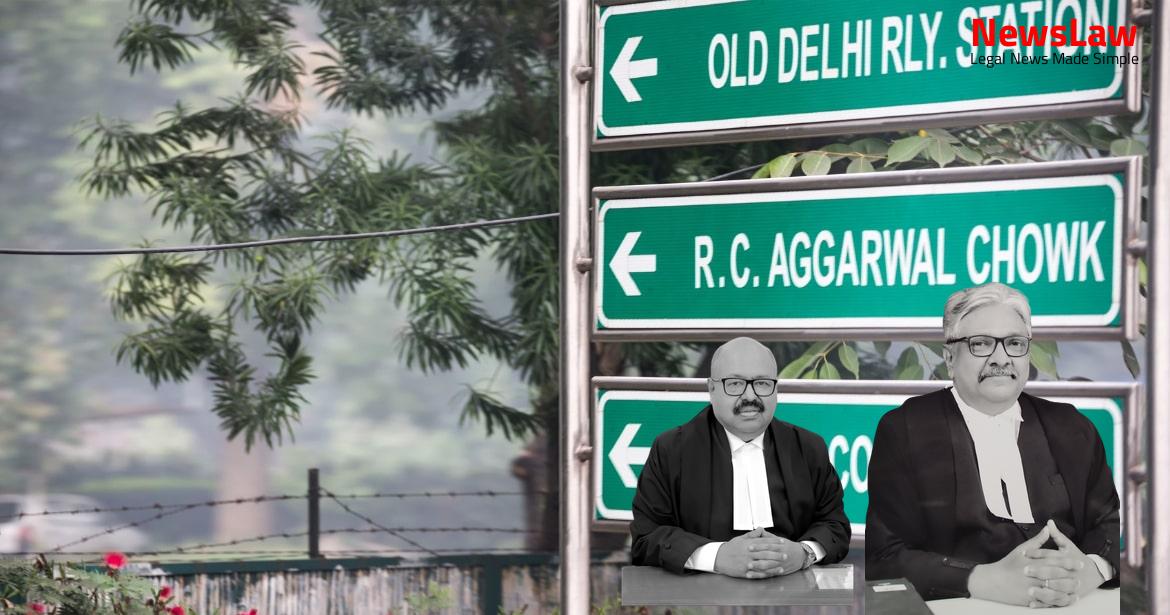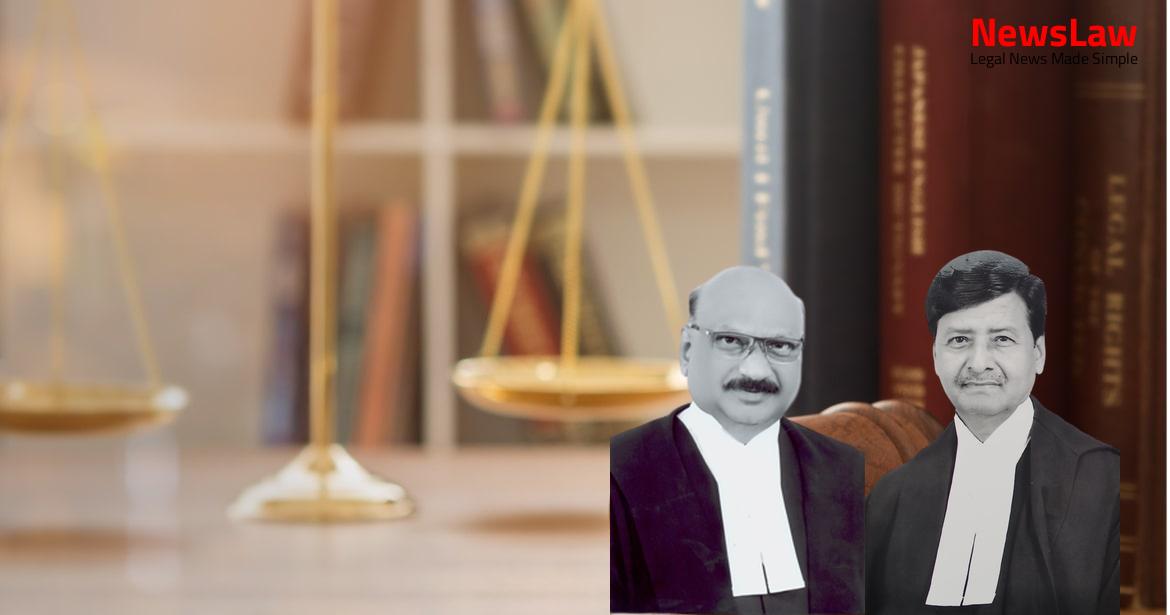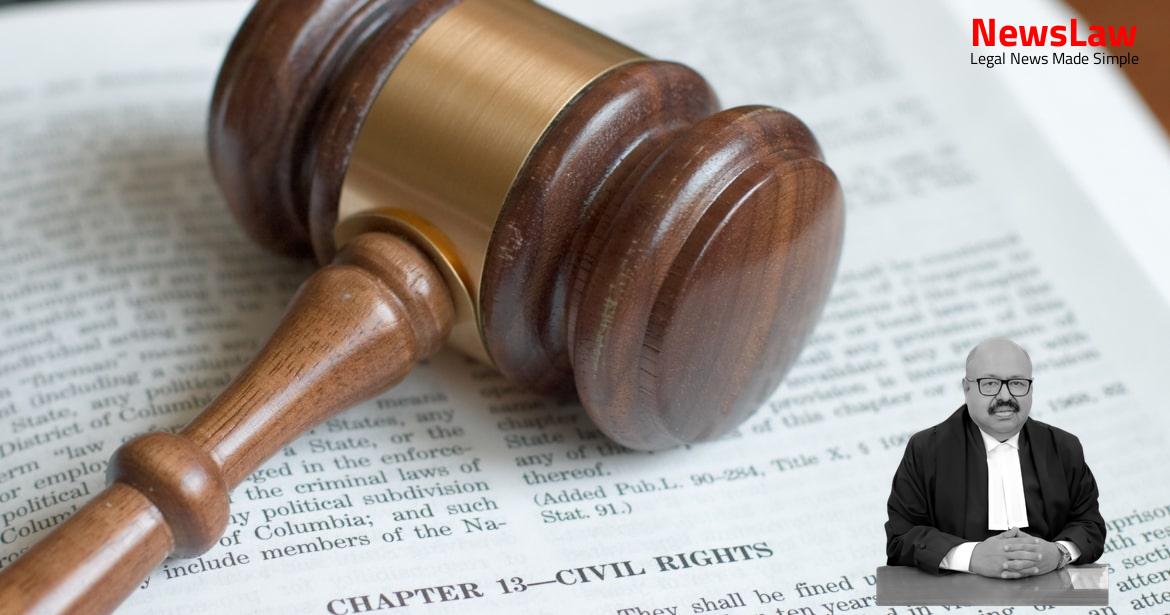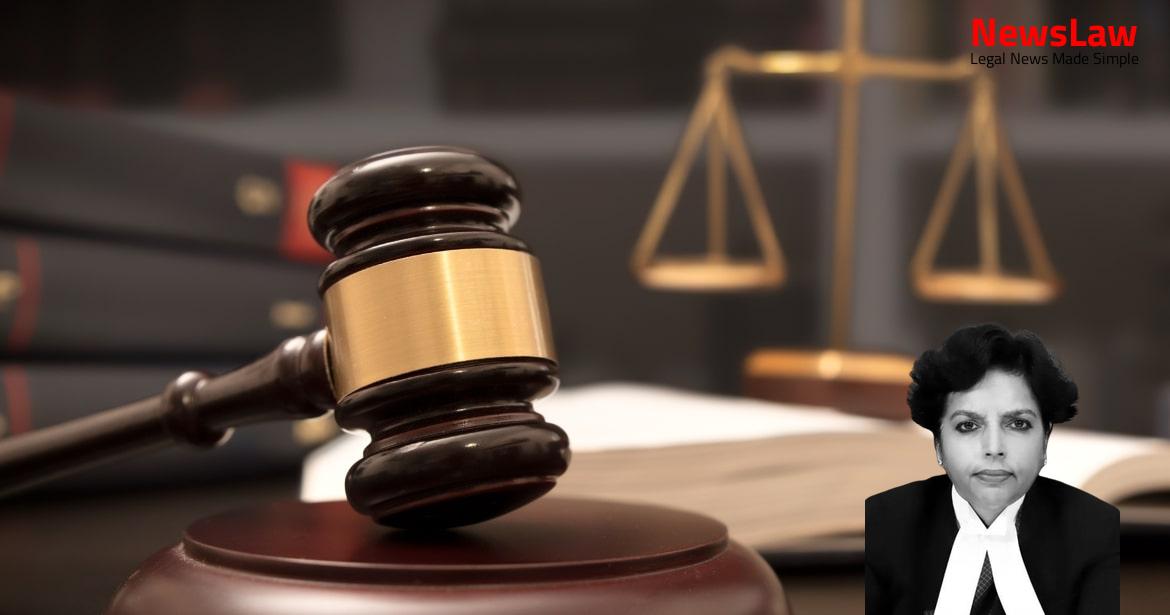Explore a complex legal case revolving around the interpretation of suspension rules in an employment scenario. The court’s analysis delves deep into the application of rules governing suspension, reinstatement, and salary entitlements for employees. Understanding the legal nuances in this context sheds light on the intricacies of employment law and employee rights, shaping precedents for similar cases in the future.
Facts
- The appellant was appointed as a Clerk on 27.12.1979 by the State Transport Department.
- A criminal case (FIR) was registered on 02.09.1986 against the appellant.
- The appellant filed Criminal Appeal No 703-SB/1996 against the conviction in this case.
- The appellant was convicted by the trial court with regard to FIR No 51/1995 by judgment dated 17.09.1996.
- The appellant was suspended w.e.f. 09.1986 in connection with the said case.
- The appellant sought a review of the judgment, contending that the court misinterpreted Rule 7.3 of the Rules.
- Subsequently, on 13.03.2003, it was decided to remove the appellant from service.
- The appellant was not acquitted in the criminal case and Rule 7.3 empowered the competent authority to pass the appellant under suspension
- The suspension period for the appellant in the FIR of 1986 in which he was acquitted was different from the later FIR in which he was convicted, so treating the suspension period as dies non did not arise
- The High Court sustained the appellant’s conviction under Section 324 and Section 506 of the IPC but reduced the sentence under Section 324 to the period already undergone
- The appellate authority found that the offence under Section 324 and Section 506 did not fall under the category of ‘Moral Turpitude’ and hence the termination order was set aside
- Rule 15(f) of the 1970 Rules allowed the appellate authority to regulate the suspension period and it was found that the appellant continued under suspension until 13.3.2003
- The appellate authority was entitled to decide that the appellant would not receive any benefit for the suspension period, declaring it as a Dies-Non period, as per Rule 15(f) of the 1970 Rules
Also Read: Legal Analysis of Assignment and Ratification in Property Law
Arguments
- Rule 7.3 does not apply as found by the High Court.
- Rule 15(v)(f) of the 1970 Rules only provides for an order passed thereunder which can lead to an appeal under the 1970 Rules.
- Once the removal of the employee has been found illegal and reversed, the employee is entitled to get the wages or salary for the entire period.
- The respondent was under suspension, so the contention that dies non was impermissible.
- The appellant is aggrieved by the original judgment allowing the second appeal and the order passed in review.
- The appellant’s guilt was established before the trial court and confirmed by the high court.
- The respondent accepted the order of the appellate authority.
- The appellant would remain under suspension based on the earlier order.
- The appellant was removed on 13.03.2003 due to conviction under IPC sections 324 and 506.
- The appellate authority ordering ‘dies non’ was deemed illegal as it exceeded the scope of the ‘1970 Rules.’
- Rule 15(v)(f) of the ‘1970 Rules’ was not deemed reliable by the respondent.
- The respondent supported Rule 7.3-B in the disciplinary proceedings.
- The appellate authority overstepped its limits by denying salary as punishment.
- The High Court reduced the appellant’s imprisonment period.
- The appellant was placed under suspension in 1986 and later terminated in 2003.
Also Read: Second Appeal Jurisdiction in Punjab and Haryana
Analysis
- Rule 15(v)(f) empowers the authority to determine whether the period of suspension should be treated as duty or non-duty.
- The order of suspension merges into the order of removal upon conversion into leave, removing the stigma of suspension.
- The civil court’s decree granted full salary upon termination set aside, but the appellate authority’s power to determine pay and allowances is based on the rules.
- The rules provide for penalties, appeals against specific orders, and the reinstatement of employees after successful appeals.
- Rule 7.3B does not cover penalties like depriving salary and vesting the power to determine pay and allowances in the authority.
- The total amount received during suspension exceeding leave salary must be refunded.
- Decisions on pay and allowances during suspension are left to the authority, not automatically granted upon reinstatement upon termination being found illegal.
- The appellate authority has specific guidelines on exercising jurisdiction as per Rule 19.
- Rule 7.3 deals with cases where a person is placed under suspension but later reinstated.
- The rule specifies the pay and allowances to be paid to a Government employee reinstated after dismissal, removal, or compulsory retirement.
- It also determines whether the period of absence from duty, including suspension, should be treated as a period spent on duty.
- In cases where the employee is fully exonerated, they are entitled to full pay and allowances as if they were not dismissed, removed, or retired.
- If the termination of proceedings against the employee was delayed due to reasons attributable to the employee, they may be paid only a determined amount of pay and allowances for the period of delay.
- The payment of allowances is subject to conditions and shall not be less than the subsistence allowance and other allowances admissible under the rules.
- The first appellate authority’s decision to impose the condition that the appellant will not receive any salary for the period and treating it as dies non is unsustainable
- The High Court did not consider important aspects while allowing the appeal and rejecting the review petition, making the judgment unsustainable
- The direction by the trial court and confirmed by the first appellate authority that the appellant should receive salary for the period he was kept out of service is also unsustainable
Also Read: Analysis of Rule 54 in Disciplinary Proceedings
Decision
- The exercise will be concluded within a period of three months from today.
- Second respondent directed to consider how the period till appellant’s reinstatement is to be treated.
- Parties to bear their respective costs.
- Question regarding the period from 13.03.2003 till 20.03.2009 to be addressed.
- Impugned judgment set aside, modifying the judgment passed by the first appellate Court.
- Decree for payment of salary to the appellant for the period he was kept out of service is set aside.
- Civil appeals allowed as above.
Case Title: SUKHDARSHAN SINGH Vs. THE STATE OF PUNJAB (2022 INSC 257)
Case Number: C.A. No.-000811-000812 / 2022



